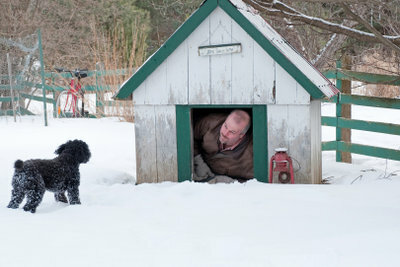Additional heating costs and then rent increase
Theoretically, every tenant can have an arrears payment for heating costs flutter into the house. This is of course annoying, but understandable. But what should the tenant do if he then receives a rent increase?

Why additional heating costs are required
- Before you can answer the question of what to do about a rent increase after you have already received a If you have received additional heating costs, you need to take a closer look at your monthly rent: Pay a basic rent on top of that Additional costs are paid? Or do you pay a flat rent including the ancillary costs?
- These two different variants have a decisive influence on how you should react to a rent increase. Because the landlord cannot easily estimate a rent increase, but the increase in ancillary costs can. This statement also makes it clear that you should always pay attention to a rent increase whether the rent or the ancillary costs have been increased.
When the rent increase is valid
- If you pay a flat rent including all ancillary costs, then your landlord cannot easily enforce the rent increase. A rent increase is only valid if, for example, major repairs or renovations have to be carried out. If this is the case, the tenant has valid reasons to increase the rent, but you still don't have to accept it. An increase will only take place if you as the tenant agree to this increase. To do this, the landlord must give you a reasonable amount of time to think about it (at least two months). Furthermore, an increase may take place at the earliest after 12 months (after you move in or after the last rent increase) and amount to a maximum of 20% within three years.
- Do you pay a cold rent where the additional costs are calculated separately? If in this case the landlord increases the rent excluding heating, then the same rules apply as for rent including heating. However, if the additional costs are increased after you have received an additional heating cost payment, then the landlord has legitimate reasons to increase the additional costs. Because with the ancillary costs you pay an advance on the heating costs actually produced and after the landlord usually pays the heating costs in advance (e. B. Delivery of heating oil), he may also increase the advance payment for ancillary costs. However, the landlord may only do this to the extent that the additional heating costs were paid. Example: You had to pay 200 euros as heating costs, then this would result in a monthly amount of 16.66 euros. If the landlord wants to increase the ancillary costs by 50 euros, this would be too high. Of course, you have to agree to an increase in ancillary costs as well as a rent increase. Alternatively, you can pay the additional heating costs in one amount again next year.
Bottom line: always check what has been increased first: the rent or the extra costs. You should then compare the increase with the local rents. Give yourself enough time to accept this increase or not. Remember that if you as a tenant do not agree, the rent increase will not be legally valid.
Object to rent increases - you should pay attention to this
"Inflation is to blame" - many tenants hear this as a reason when ...
How helpful do you find this article?


